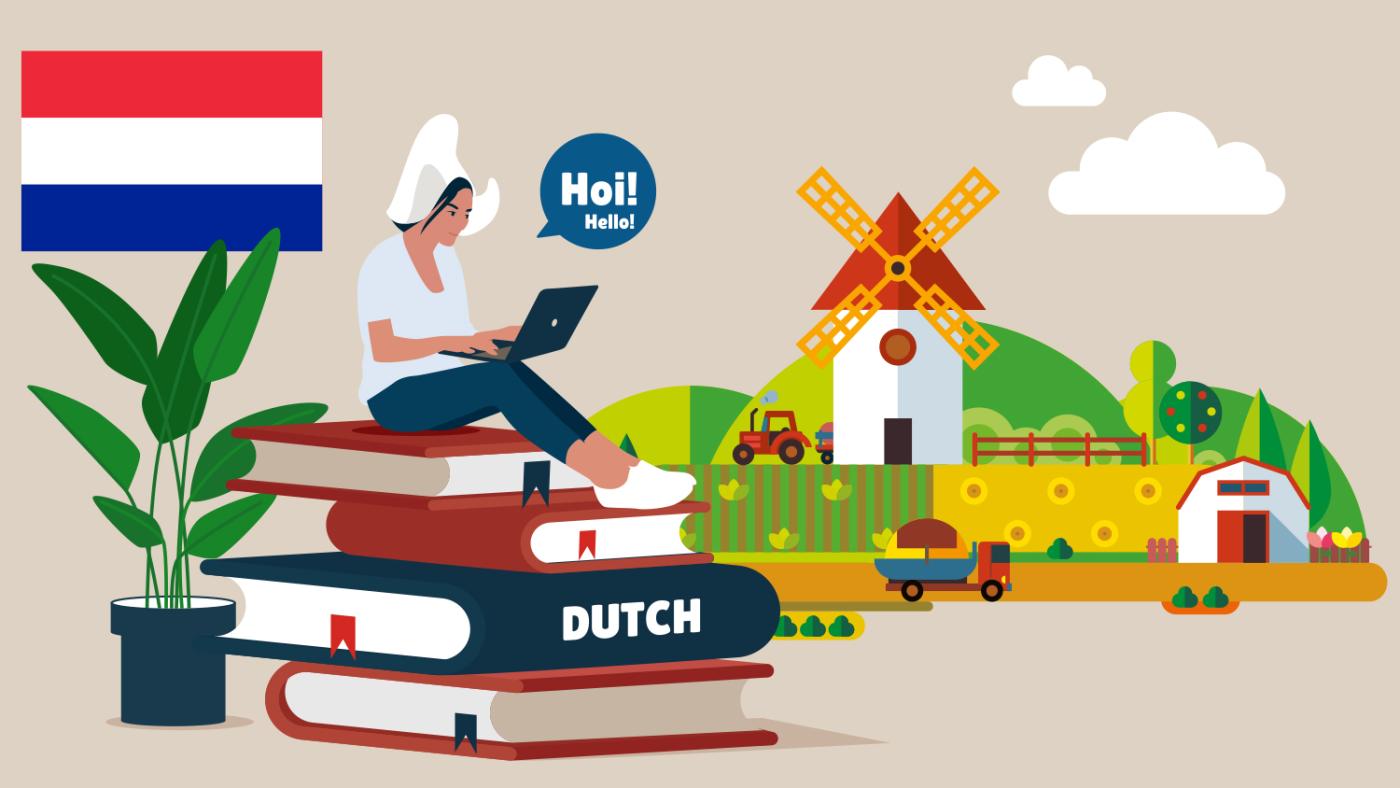More and more students from foreign universities are learning Dutch
‘After three weeks, I could already have a basic conversation in Dutch’

Bram's (20) Hungarian students sometimes asked why he didn't study Dutch himself. Between September and January, the third-year Linguistics student did an internship in Budapest, where he supervised Dutch Language & Culture students at Eötvös Loránd University. He replied that he chose Linguistics because his interest in language was broader than just Dutch, adding that Dutch programmes are not that popular in the Netherlands. That surprised the students.
In the Netherlands, the number of people studying the Dutch language at the university level dropped by half between 2010 and 2018. Vrije Universiteit Amsterdam has since terminated its Dutch programme. Even so, the number of first-year students continues to decline. Two years ago, the former minister of education even suggested that Dutch should only be offered at a single university in the entire country.
Abroad, however, the popularity of Dutch is going through the roof. Figures from Taalunie, the policy organisation for the Dutch language, show that the number of people studying Dutch outside the Dutch-speaking area has increased from approximately 13,500 to over 16,000 since 2018. This follows a period in which the number of higher education institutions offering Dutch outside the Dutch-speaking area declined rapidly. In 2009, 171 institutions did so, but that number stabilised at around 130 a few years ago.
Easily learning students
Utrecht University helps students from non-Dutch speaking areas to learn Dutch. UU students like Bram can work for a semester at eleven universities in Europe, including in places like Sheffield, Madrid, Naples, and Stockholm. During their NLT work placement (NLT is a Dutch acronym for Dutch as a Foreign Language), the UU students teach speaking and listening skills, develop course material, and correct assignments.
In Budapest, Bram's main activity was seeing students during office hours. ‘First-year students had to visit me three times in pairs and second-year students twice. I would prepare a few speaking exercises or games and then have the duos talk to each other in Dutch for 20 minutes.’ Bram was amazed at how quickly they mastered the language. ‘After three weeks, I could already have a basic conversation with first-year students. I certainly did not expect that.’
Julia (22), an English student, was also surprised at how quickly the students she encountered learned Dutch. Last semester, she did an NVT internship in Brno, the second largest city in the Czech Republic. ‘I started learning Czech at the same time as the first-year students started learning Dutch. By the end of the semester, I couldn't speak a word of Czech, but I could already have an actual conversation in Dutch with the students.’

Photo: Shutterstock
Sprinkles and bycicles
Students in Budapest and Brno had different reasons for studying Dutch. In Budapest, Bram noticed that many of them were simply interested in the Netherlands as a country. ‘Many students find the Netherlands interesting due to its cycling culture, sprinkles, that sort of thing.’
Julia heard other reasons in Brno. ‘Many students want to work in the Netherlands or the European Union, and it would be an advantage for them to speak Dutch.’ Students in Brno can even take a course on government terminology as part of the programme. ‘I thought it was funny that the students learned so much about the Dutch government. I never learned how politics works in England or the United States for my English degree.’
Bram notes that many Hungarian students plan to pursue a job in business or government after their Bachelor's degree. ‘They often choose something other than Dutch after their bachelor's, but they go for something where they need or can use Dutch. They mentioned working in customer service often, but they also went into data management.’
Julia adds that some students were interested in Dutch literature and joined the programme to become translators. ‘Most of them translate texts from Dutch to Czech. The other way around doesn't really happen.’
Dutch is a widely spoken language
It may come as a surprise that so many foreign students see Dutch as a language with good job prospects. After all, Dutch has relatively few speakers compared to other European languages, and native speakers usually speak English well. According to Gunther van Neste, General Secretary at Taalunie, the situation is more nuanced than that. ‘We always think that Dutch is not that big of a language, but that's not true.’
According to Taalunie, approximately 24 million people have Dutch as their mother tongue, which makes Dutch one of the 40 most spoken languages in the world among 6,000 languages. Translators from Dutch into another language have their work cut out for them. ‘There appears to be quite a lot of demand for all kinds of translations.’ For example, anyone who starts a business in Poland and wants to be sure that all documents are legally sound would be well advised to have them read by someone who speaks both Polish and Dutch.
Scientists from all over the world can also benefit from knowing Dutch, says Van Neste. ‘That is another specific reason to learn Dutch. Archives with Dutch documents exist all over the world due to our history as a seafaring and colonial nation.’ These documents are not only used for historical research. For example, an almanac from the 18th century, written in a trading post on the Indian coast, can also be used for climate research as it gives researchers a better picture of how temperatures and precipitation have changed over the years.
Back to Budapest
Bram learned a lot in Budapest. ‘The internship had a positive influence on me. It confirmed that I like education in general and teaching at the university level specifically. I had never done that before.’
Bram also taught at the Dutch School in Budapest, a school for children who speak both Dutch and Hungarian at home. They go to that school once a week to keep their Dutch up to standard. ‘It was hard to teach university students at first because young children have a much better command of Dutch than university students. After all, they have been hearing Dutch since birth.’
Some Hungarian children who are brushing up on their Dutch are considering moving to the Netherlands later to study at a Dutch university. If they do so, the story might come full circle: they, too, can spread the Dutch language further by doing an NVT internship.